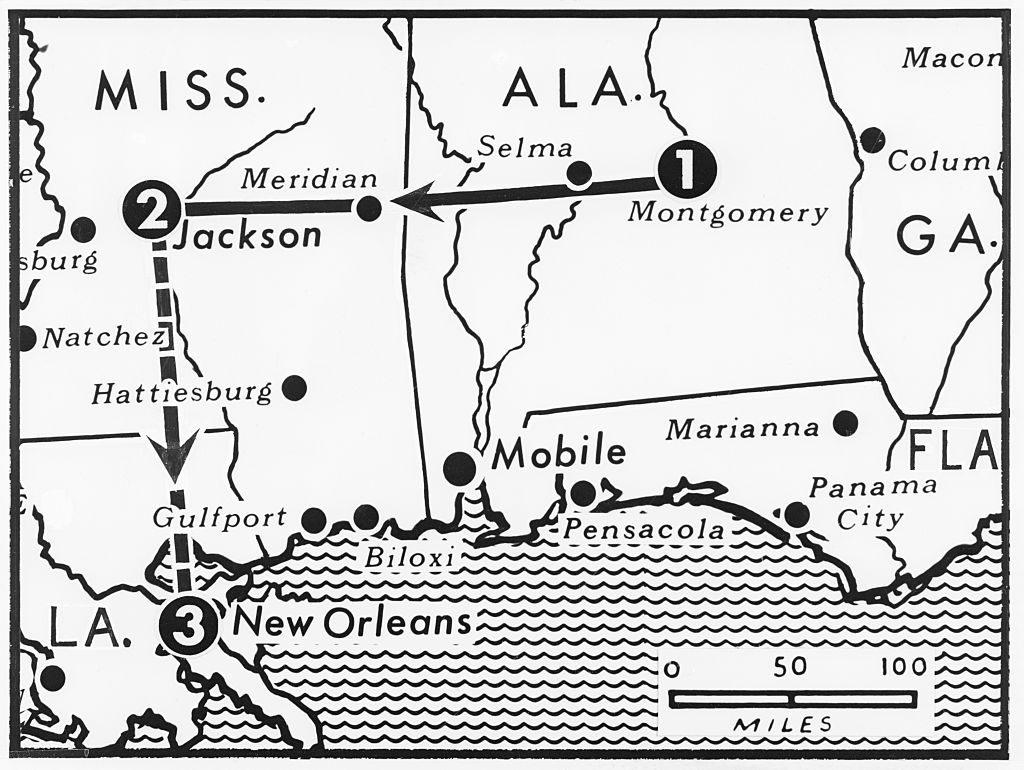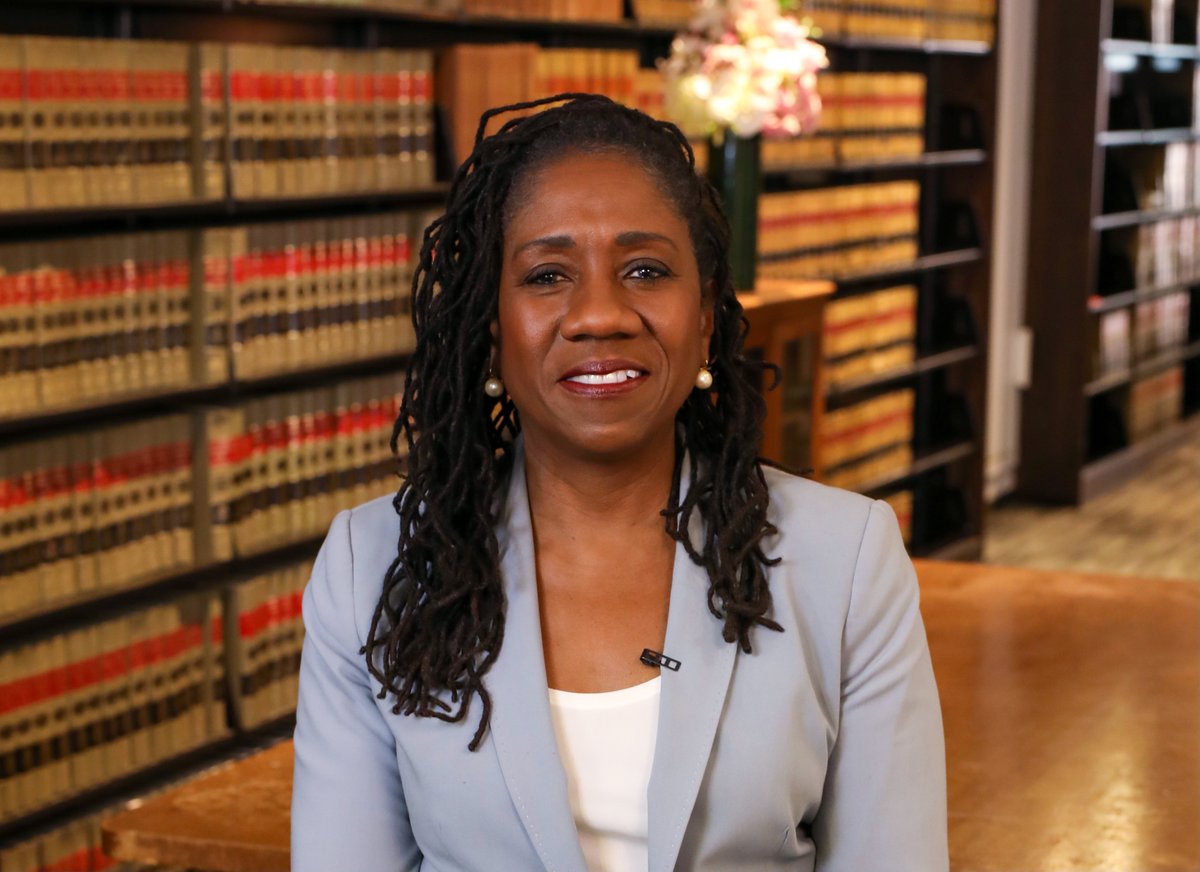🚨After 7 days in court CLOSING ARGUMENTS in the historic trial to restore the #voting rights of returning citizens will take place in 10 min.
Join @NAACP_LDF, @ACLU, @ACLUFL, @BrennanCenter, @CampaignLegal & @splcenter in court.
Dial: (571) 353-2300;;034872985#
#JonesvDeSantis
Join @NAACP_LDF, @ACLU, @ACLUFL, @BrennanCenter, @CampaignLegal & @splcenter in court.
Dial: (571) 353-2300;;034872985#
#JonesvDeSantis
.@NAACP_LDF Deputy Director of Litigation Leah Aden will kick off closing arguments for the plaintiff side addressing the intentional racial discrimination claim under the 14th & 15th Amendments of the Constitution.
The FL legislature did not simply target with a disparate impact on Black voters, it was motivating with a specific intent to limit Black voters access to the franchise.
-Leah Aden, @NAACP_LDF
#JonesvDeSantis
-Leah Aden, @NAACP_LDF
#JonesvDeSantis
The FL legislature did not just target returning citizens generally...who are majority Black...it was more precise even… it knew it would disproportionately hurt Black voters.
-Leah Aden, @NAACP_LDF
#JonesvDeSantis
-Leah Aden, @NAACP_LDF
#JonesvDeSantis
Targeting voters based on race, even as the proxy of partisanship, is an inadmissible motive...here it is intended to limit the political participation of Black voters.
-Leah Aden, @NAACP_LDF
#JonesvDeSantis
-Leah Aden, @NAACP_LDF
#JonesvDeSantis
Nancy Abudu of @splcenter is now delivering closing argument.
"The payment of LFOs is a punishment and the punishment is the denial of #voting rights for failure to pay fees that are extreme."
#JonesvDeSantis
"The payment of LFOs is a punishment and the punishment is the denial of #voting rights for failure to pay fees that are extreme."
#JonesvDeSantis
The court has repeatedly looked at what constitutes as excessive...The state is trying to use that strong arm of the state to penalize people who are trying to exercise their right to vote.
-Nancy Abudu of @splcenter
#JonesvDeSantis
-Nancy Abudu of @splcenter
#JonesvDeSantis
It is a punishment, the state has conceded it’s a punishment and therefore a violation of the...eighth amendment.
-Nancy Abudu of @splcenter
#JonesvDeSantis
-Nancy Abudu of @splcenter
#JonesvDeSantis
"The defendants have not challenged any of the evidence we presented in terms of the undue burden."
-Nancy Abudu of @splcenter
#JonesvDeSantis
-Nancy Abudu of @splcenter
#JonesvDeSantis
"We are not expecting the court to solve all of the social ills that exist in this society, but we are asking the court to exercise its authority to block #SB7066 so that it doesn't make those social ills even worse."
-Nancy Abudu of @splcenter
#JonesvDeSantis
-Nancy Abudu of @splcenter
#JonesvDeSantis
@DaniLang_DC of @CampaignLegal is now addressing the 24th amendment, NVRA, and due process claims.
"These LFOs are calibrated to fund the government...almost all of that money goes to fund government programs or grants through the legislature."
#JonesvDeSantis
"These LFOs are calibrated to fund the government...almost all of that money goes to fund government programs or grants through the legislature."
#JonesvDeSantis
"All of these LFOs are going to fund the government...
The #1 priority for partial payment is that it goes to the government..and that is quintessentially a tax."
-@DaniLang_DC of @CampaignLegal
#JonesvDeSantis
The #1 priority for partial payment is that it goes to the government..and that is quintessentially a tax."
-@DaniLang_DC of @CampaignLegal
#JonesvDeSantis
🚨 "You can end up paying all of these surcharges..and never pay a dollar to the victim in the restitution order.
These are taxes.
The only thing the government is requiring is that they exact their fee for #voting."
-@DaniLang_DC of @CampaignLegal
#JonesvDeSantis
These are taxes.
The only thing the government is requiring is that they exact their fee for #voting."
-@DaniLang_DC of @CampaignLegal
#JonesvDeSantis
"The department will not credit voters for payments to the victims...it incentivizes people to move away from paying restitution to victims and instead pay the state taxes."
-@DaniLang_DC of @CampaignLegal
#JonesvDeSantis
-@DaniLang_DC of @CampaignLegal
#JonesvDeSantis
"The current process for LFOs is just no process at all."
-@DaniLang_DC of @CampaignLegal
#JonesvDeSantis
-@DaniLang_DC of @CampaignLegal
#JonesvDeSantis
"You hear the constant imagery, during testimony, of brick walls...voters are set in a vicious cycle."
-@DaniLang_DC of @CampaignLegal
#JonesvDeSantis
-@DaniLang_DC of @CampaignLegal
#JonesvDeSantis
"The Secretary of State has provided no guidance to help decipher this maze."
-@DaniLang_DC of @CampaignLegal
#JonesvDeSantis
-@DaniLang_DC of @CampaignLegal
#JonesvDeSantis
"These issues that the supervisor of elections, voters and voter registration organizations are asked to traverse are extraordinarily complicated...It is complicated and not going to get better."
-@DaniLang_DC of @CampaignLegal
#JonesvDeSantis
-@DaniLang_DC of @CampaignLegal
#JonesvDeSantis
Finally, finishing out the plaintiff closing argument is @JulesTwitted of @ACLU, addressing the wealth discrimination claim, uniformity claim, 1st Amendment claim, and other issues.
#JonesvDeSantis
#JonesvDeSantis
"The vast majority are unable to pay...in fact, FL does not even expect to get its LFOs paid back."
-@JulesTwitted of @ACLU
#JonesvDeSantis
-@JulesTwitted of @ACLU
#JonesvDeSantis
"We've heard testimony that [figuring out what one owes] can be an impossible task."
-@JulesTwitted of @ACLU
#JonesvDeSantis
-@JulesTwitted of @ACLU
#JonesvDeSantis
"Supervisors of elections have [said] they don’t know what documents to look at to make these determinations...Now there's the added difficulty of determining the amount paid."
-@JulesTwitted of @ACLU
#JonesvDeSantis
-@JulesTwitted of @ACLU
#JonesvDeSantis
"Individual citizens will face significant burdens if they have to go back and figure what they have paid in each sentence…to the extent this is a real policy...it makes it impossible for individuals to figure out how much they owe."
-@JulesTwitted of @ACLU
#JonesvDeSantis
-@JulesTwitted of @ACLU
#JonesvDeSantis
"As far as the voters who a genuinely unable to pay...there has been no guidance by the Secretary of State...people are afraid to register, they are afraid to be prosecuted and I don’t blame them."
-@JulesTwitted of @ACLU
#JonesvDeSantis
-@JulesTwitted of @ACLU
#JonesvDeSantis
"The system is also not uniform [among counties]… we heard that clerks offices do not track the amount...there are different payment rules...there are different removal procedures."
-@JulesTwitted of @ACLU
#JonesvDeSantis
-@JulesTwitted of @ACLU
#JonesvDeSantis
"For these reasons, we ask the court to find that Florida's system of asking returning citizens to pay for their right to vote violates the US Constitution."
-@JulesTwitted of @ACLU
👏👏👏
#JonesvDeSantis
-@JulesTwitted of @ACLU
👏👏👏
#JonesvDeSantis
Judge Hinkle: [The plaintiffs] challenge application of #Amendment4 to the extent it requires payment that, under the US Constitution, cannot be imposed as a condition of voting. I understand [Florida's] effort to read their claim more narrowly, but that’s just not their claim.
Rebuttal of the state's closing argument is now underway.
“The only thing the first dollar theory does is fill the coffers of the state and enrich debt collectors.”
-@JulesTwitted of @ACLU
#JonesvDeSantis
“The only thing the first dollar theory does is fill the coffers of the state and enrich debt collectors.”
-@JulesTwitted of @ACLU
#JonesvDeSantis
If the basis for passing this law was to have made things easy to administer, we submit that they could not have filed a law that made it more difficult to determine fees and eligibility to vote.
-@JulesTwitted of @ACLU
#JonesvDeSantis
-@JulesTwitted of @ACLU
#JonesvDeSantis
"Some of our clients have waited their entire lives to vote. Their constitutional rights cannot be sacrificed at the altar of feasibility and bureaucracy of the state."
-@JulesTwitted of @ACLU
#JonesvDeSantis
-@JulesTwitted of @ACLU
#JonesvDeSantis
• • •
Missing some Tweet in this thread? You can try to
force a refresh















